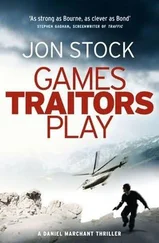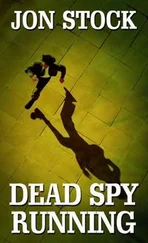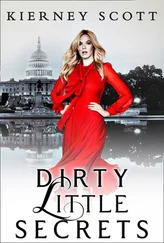Marchant let the two women climb up into the carriage first, then followed them, before turning to wave to the crowd.
‘You’re not fooling anyone,’ the businessman persisted, pushing his way to the edge of the platform. Marchant was aware that the public scene he had created needed to end quickly. The police would arrive soon, questions would be asked, statements taken. Up until now he had avoided using force, hoping to defuse rather than exacerbate the situation. But the businessman had a doggedness about him that troubled Marchant.
‘Drugs only deceive yourself, my friend,’ the businessman said. ‘You don’t fool me.’
‘I know I don’t,’ Marchant said, leaning down towards him, his mouth close to the man’s ear. ‘But what I do know is that if you try to come after us, or talk to the police, or identify us to anyone, I’ll personally break your neck, just like Shah Rukh does in the film.’
In another life, a different time, Marcus Fielding and William Straker might have been close. American intelligence officers everywhere had cheered when Straker was appointed Director of the CIA. He was a spy’s spy, a HUMINT man through and through, rising to head the Agency’s Clandestine Service before taking over as its Director. His appointment had softened the blow of the CIA suddenly finding itself answerable to a higher authority, the new Director of National Intelligence. But working for a DNI suited Straker fine. It helped to deflect some of the unwanted publicity.
Not many clandestines made it to the top of a bureaucracy as big as the CIA. Straker was good for the spy’s soul at a time when Congress was questioning the Agency’s very existence. And his Marines background played well with the paramilitaries, too. He was less popular in London. Straker had personally led the drive to remove Stephen Marchant, which, given Fielding’s loyalty to his predecessor, made for a far from special relationship between the two intelligence chiefs.
But Fielding had been suspicious of Straker long before he helped to remove Marchant. He knew that they should have been allies rather than antagonists. Straker couldn’t be more different from the previous Director, a showman who had somehow emerged from the harsh, post-9/11 spotlight as a celebrity clandestine, savouring the international limelight before retirement and memoirs. Straker was different, more like the British. He had always preferred the penumbral. And as such he was a greater threat to the Service, because he played by the same rules.
‘Sirs,’ Straker said, his manner drilled, precise. ‘There’s not a lot of time. One of our top generals was almost killed tonight. I need to know everything we have on the Gymkhana blast. Was Marchant involved?’
Red lights on three small cameras, mounted on a terminal in the centre of the table, glowed discreetly. Carter glanced at Fielding, who nodded and then looked up at the video screen. ‘Sir, as you know, Marchant’s become the subject of a level-five covert. MI6 think he was at the club, but that he wasn’t responsible.’
‘I thought you’d say that. Just like he wasn’t trying to take out Munroe. Marcus?’
‘Will, I know how this must appear, but we’re convinced Marchant’s being set up here.’
‘Not by us he isn’t,’ Straker said.
Fielding read the subtext–Leila hadn’t been used by the Americans to frame Marchant–and ignored it. To look at, Straker reminded Fielding of one of the thickset rugby players his college at Cambridge used to admit, the promise of an impressive performance on the field outweighing any academic shortcomings off it. Only he knew that Straker was the sharpest officer of his generation. Both fluent Arabic-speakers (Straker spoke Russian and Urdu too), their paths had crossed when he and Fielding had talked Gaddafi out of his nuclear ambitions. For a while there had been a healthy intellectual rivalry between the two of them, until Langley claimed all the credit for castrating Gaddafi.
But what bothered Fielding now was the knowledge that the Leila plan would have been personally signed off by Straker, even if it had been Spiro’s operation. A line was supposed to have been drawn after Stephen Marchant’s resignation, but relations between the CIA and MI6 had remained resolutely sour.
‘I’ve got POTUS touching down in Delhi in seventy-two,’ Straker said, ‘and right now I need a very good reason not to bring Marchant in and lean hard on the Indians to take Dhar out.’
‘It would be better to let Marchant find him first,’ Fielding said coolly. He didn’t care for Straker’s bullying impatience.
‘I appreciate that’s an option, Marcus. It’s why I pulled Spiro and put Alan there in charge. But I was hoping Marchant would lead us to Dhar, not try to take out General Casey at the Gymkhana Club.’
‘We think Dhar might be a potential asset,’ Carter said, glancing at Fielding, who was happy for him to take the lead. Since the discovery of the payments to the Dhar family, Fielding had been wondering how to break the bad news to the Americans. Letting one of their own be the messenger seemed as good a solution as any.
‘An asset? Am I missing something here? Right now, Salim Dhar’s our new Ace of Spades.’
‘Sir, we think he could be turned.’ Carter looked back again nervously. Fielding gave the discreetest of nods.
‘Is that right?’
‘MI6 have turned up some interesting CX on Dhar,’ Carter continued.
‘Will, we think he might be one of ours,’ Fielding said, acknowledging Carter, who had drawn enough of the Director’s fire. He would take it up from here.
‘You think?’
‘Stephen Marchant set up a retainer for his family back in 1980, when he was posted to Delhi.’
‘Christ, Marcus, why didn’t you mention this sooner?’
Fielding pointedly ignored the question. ‘Monthly payments to his father, following his dismissal from the British High Commission.’
‘Didn’t he once work at our embassy?’
‘For a number of years, yes.’
‘So why was Marchant paying him? Dhar was just a kid.’
‘I know.’ It was the one question Fielding didn’t have an answer to.
‘But you think this makes Dhar a good guy, rather than confirming our worst fears about Stephen Marchant? Forgive the Monday-morning quarterbacking, but from our point of view this doesn’t exactly look like asset cash well spent: two US Embassy attacks, the London Marathon.’
‘No one’s saying he’s ours, sir,’ Carter said. ‘But we think he might be persuaded to work for the British.’
‘And Daniel Marchant is the only person who can find out,’ Fielding added. ‘Dhar would be the highest ranking member of AQ the West has ever run. We’d be prepared to pool on this one.’
There was another pause, and for a moment Fielding thought the link with Langley had dropped. But he knew the plan would appeal to the clandestine streak that ran deep in the Director.
‘I can’t have Marchant and Dhar running around India when the President arrives. The DNI just wouldn’t buy it. And I wouldn’t blame him.’ He paused again. ‘You’ve got twenty-four to figure out which side Dhar’s on, then we’re bringing them both in.’
The two women, Kirsty and Holly, had tickets for three-tier A/C on the Mangala Express, which was considerably more comfortable than Marchant’s bare-benched economy carriage. Their entire compartment was open plan, but it was loosely divided up into separate areas by curtains. The lights had already been turned down, even though Delhi was only an hour behind them, and the atmosphere was like that of a well-behaved school dormitory, a faint murmur of snoring rising above the rattle of the wheels. Marchant’s carriage, by contrast, was a seething mass of people who were clearly intent on eating, burping and arguing all the way to Kerala, 1,500 miles south. There were no beds, just hard wooden seats.
Читать дальше












